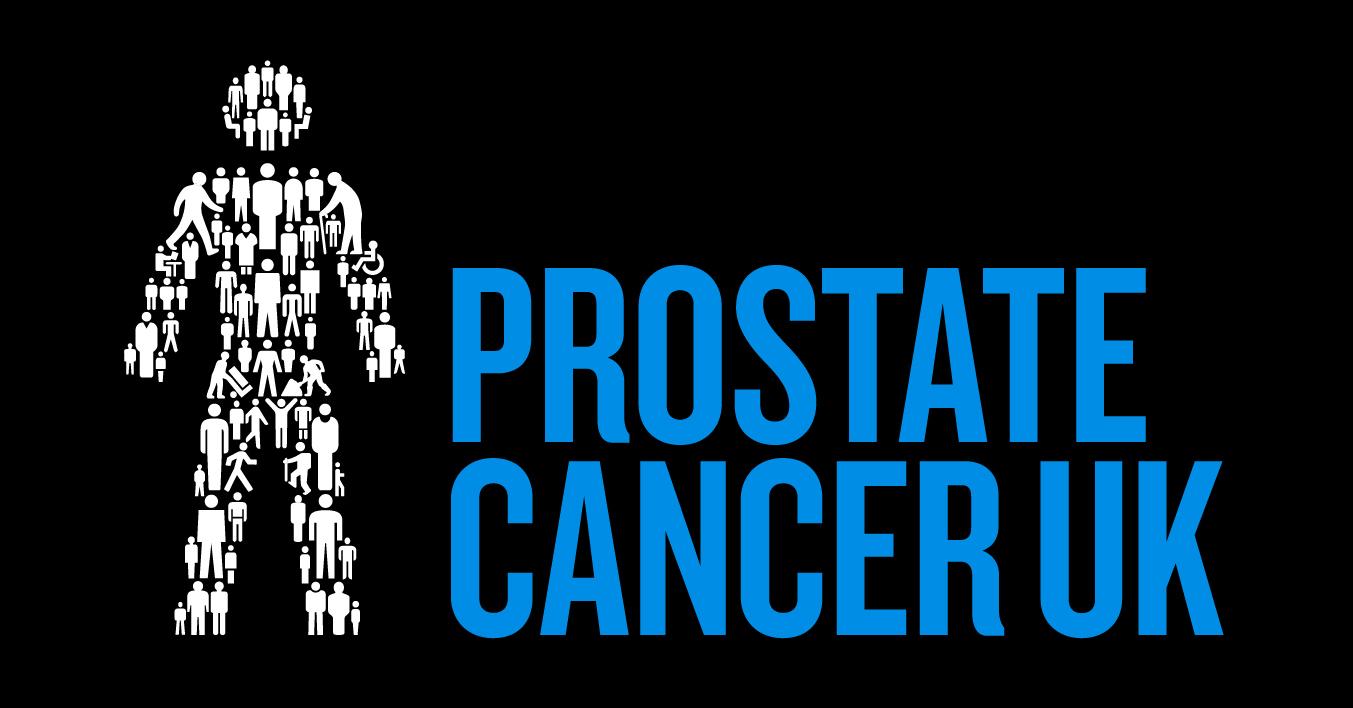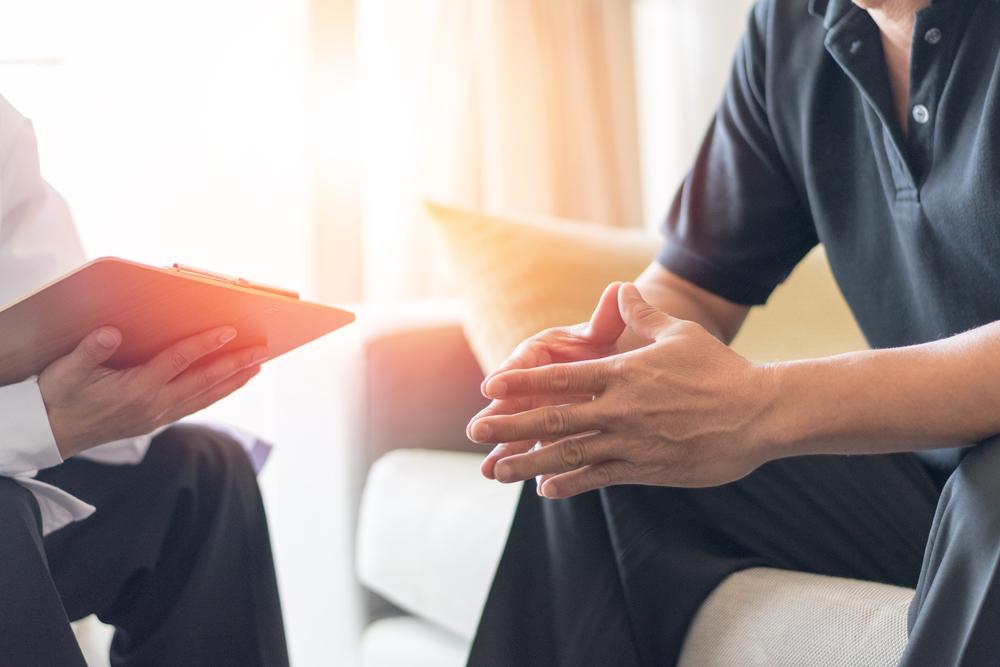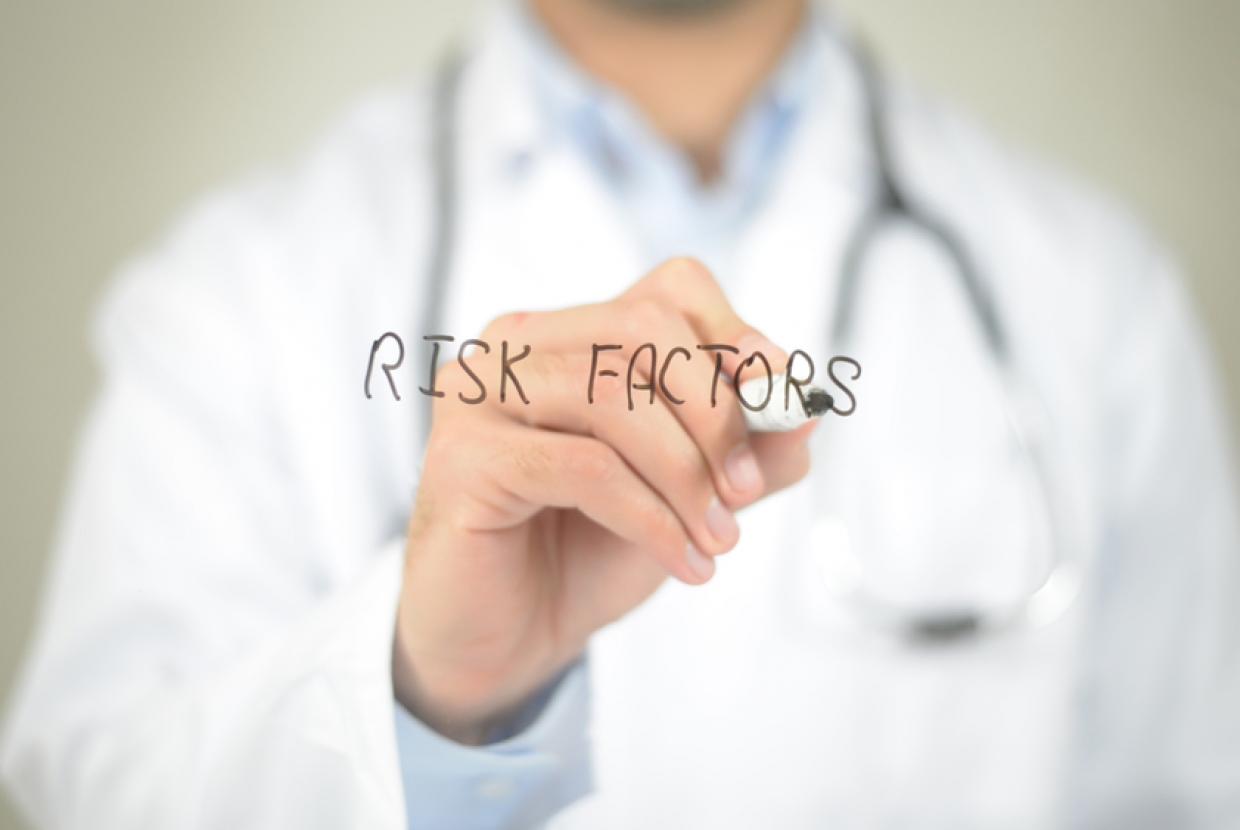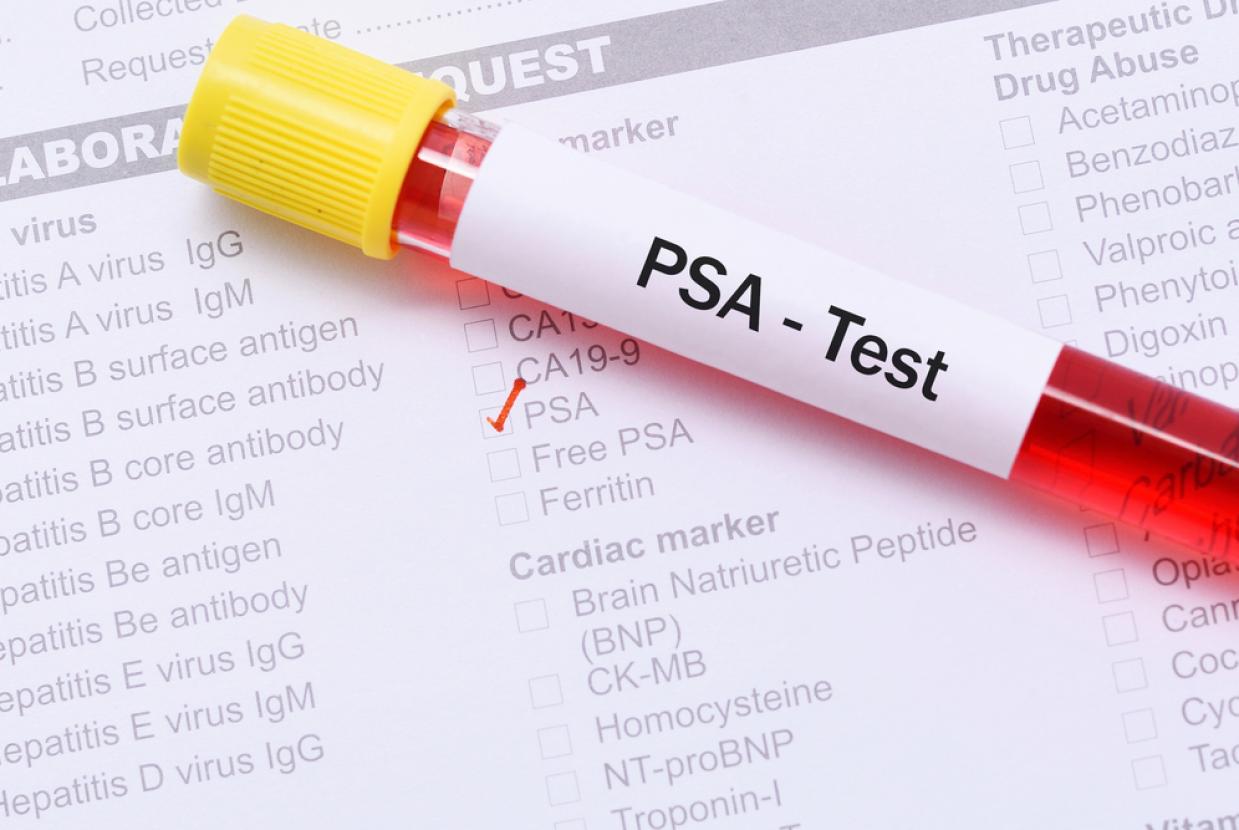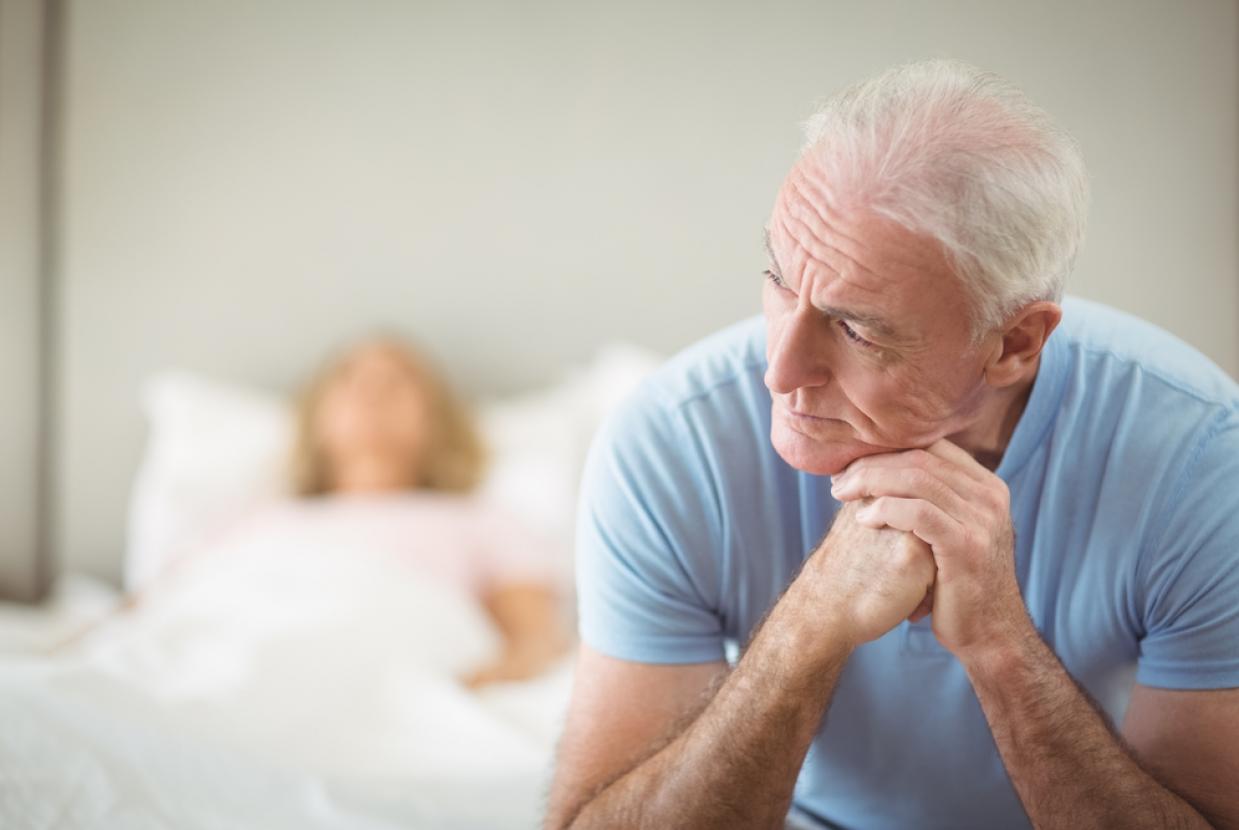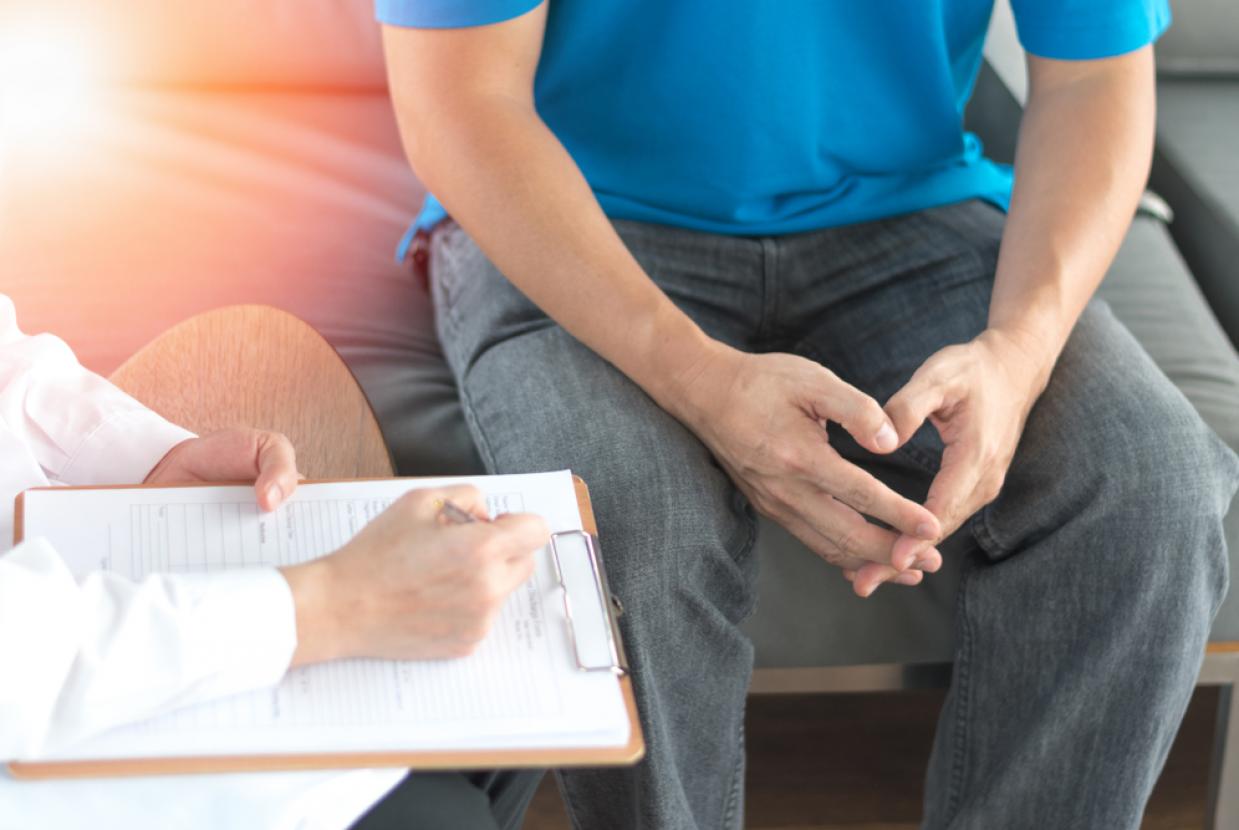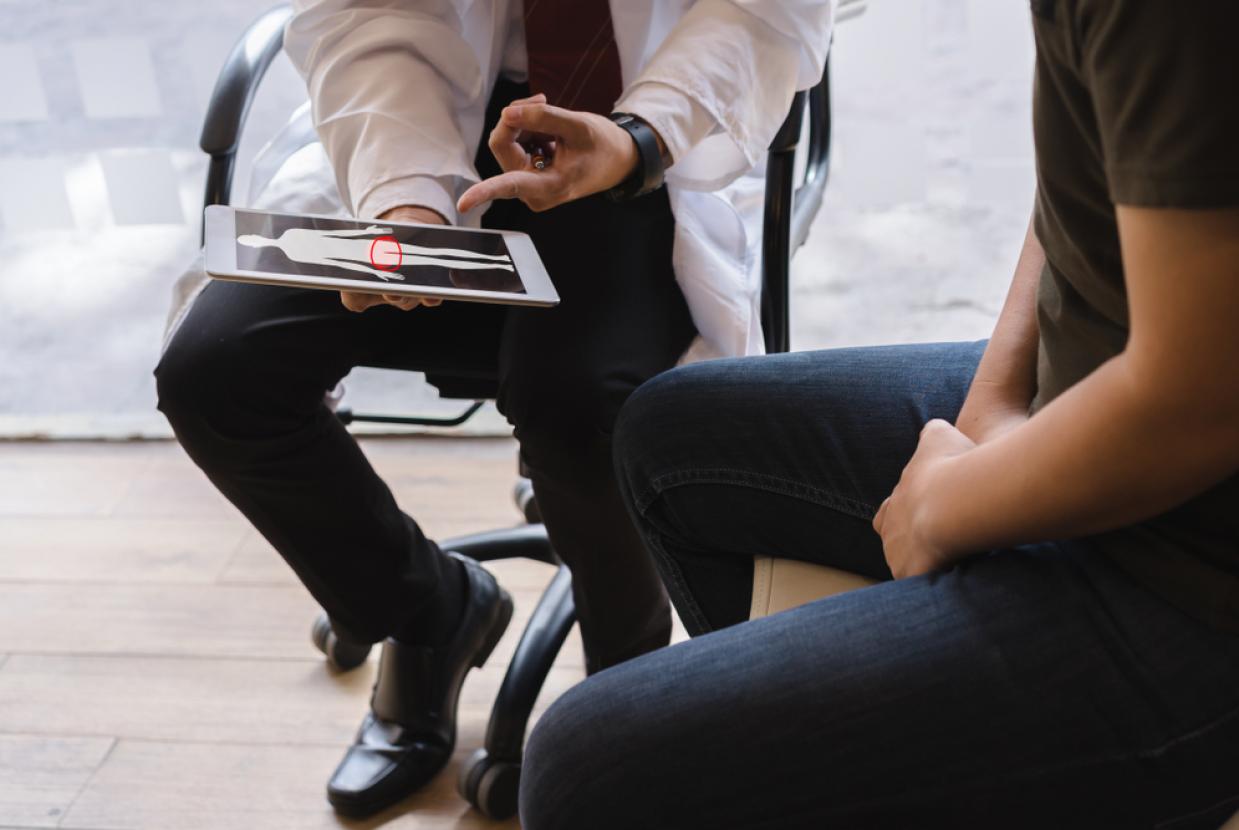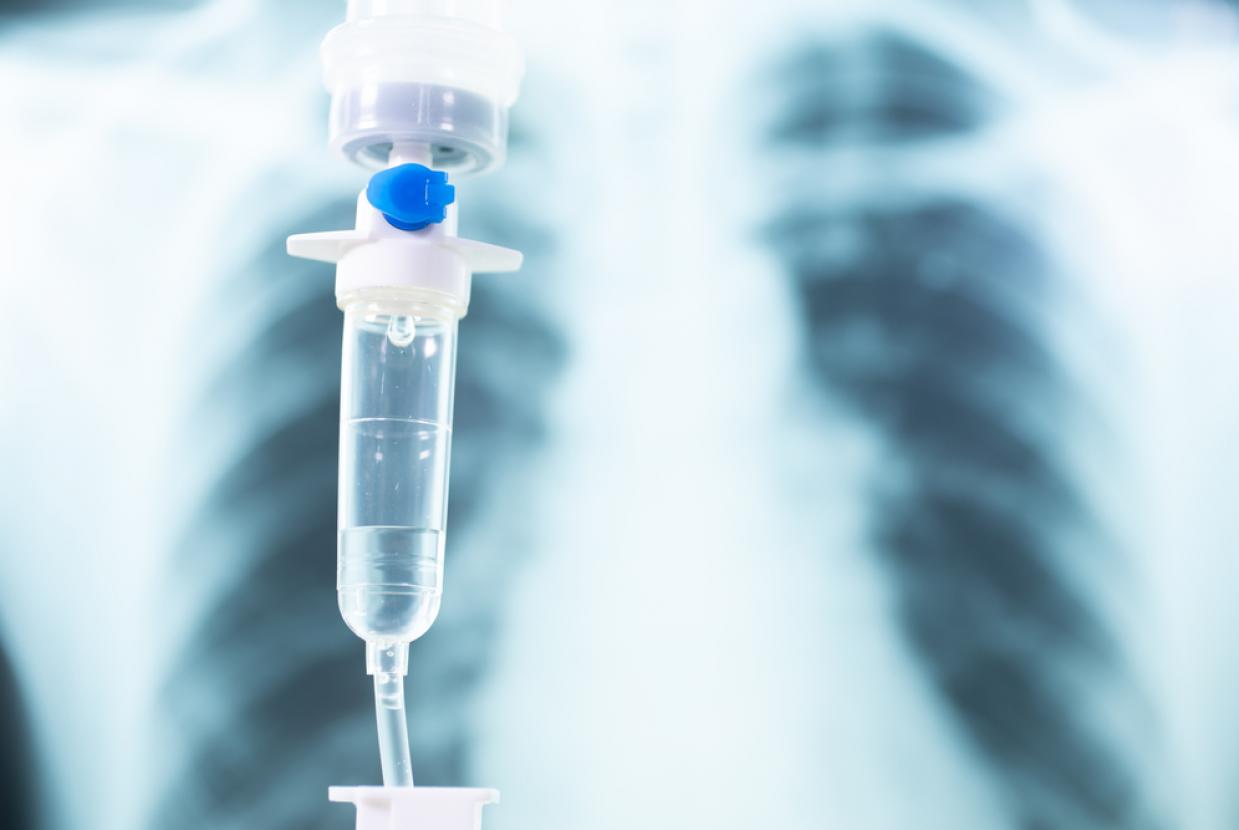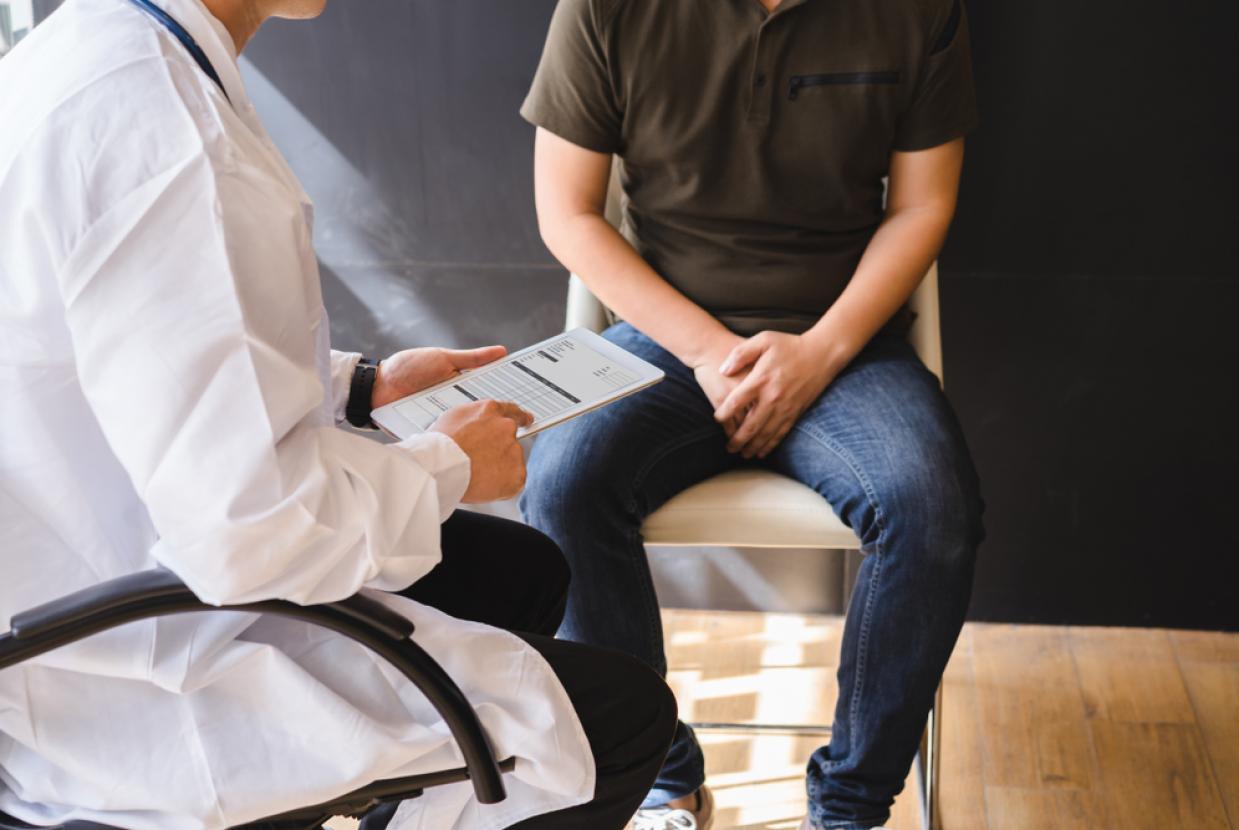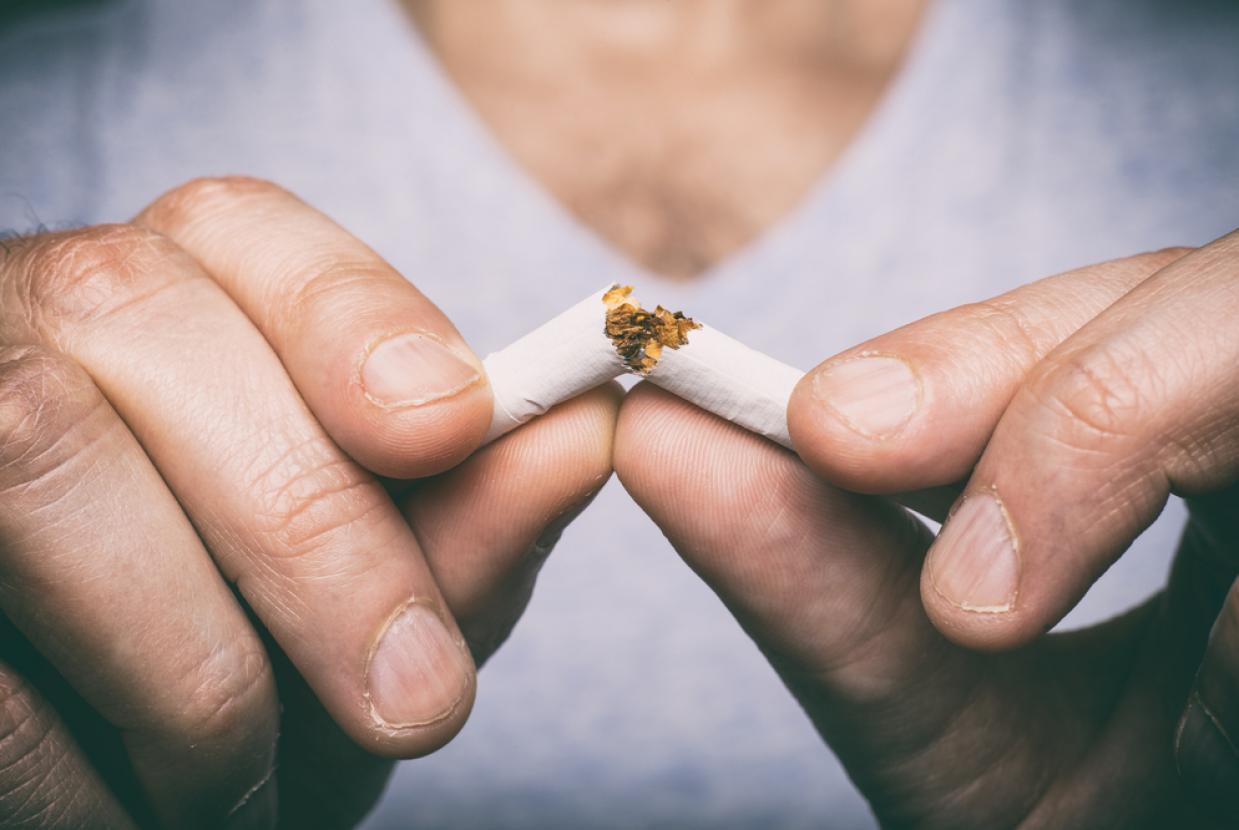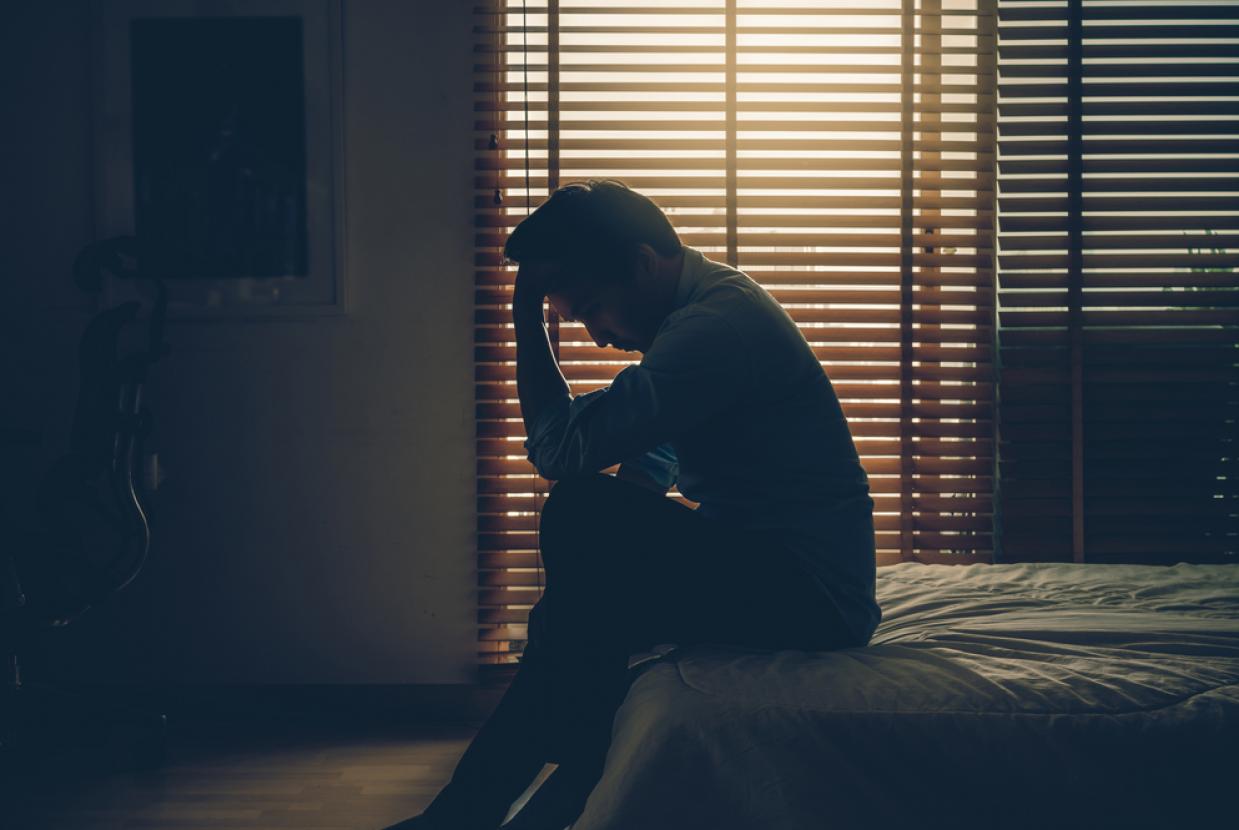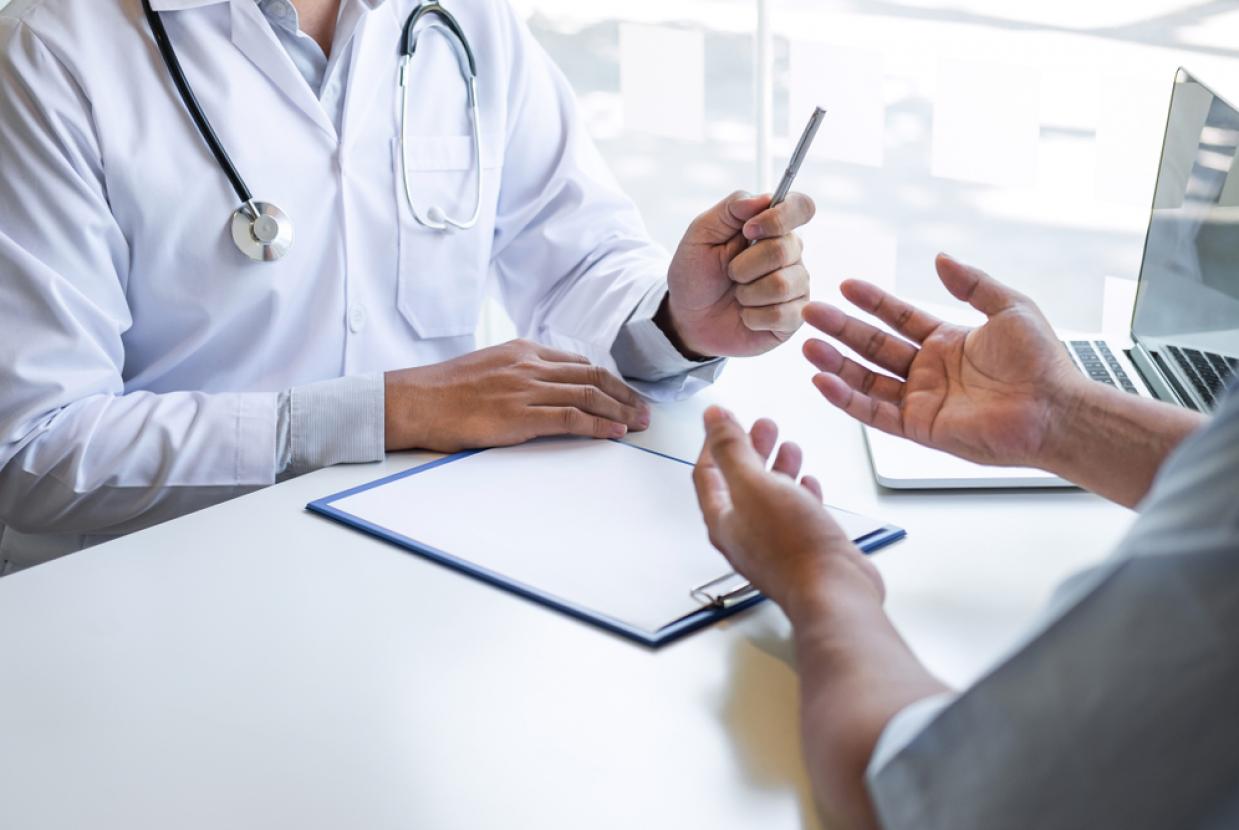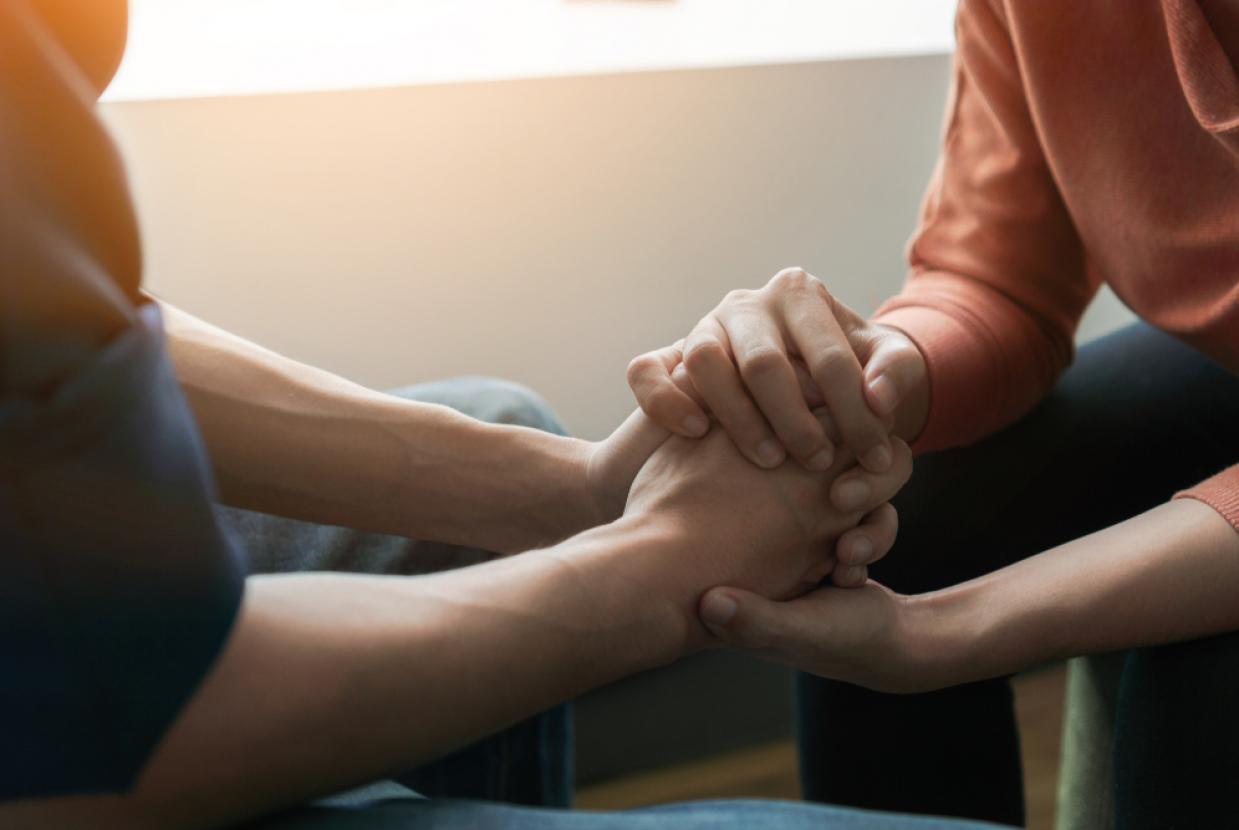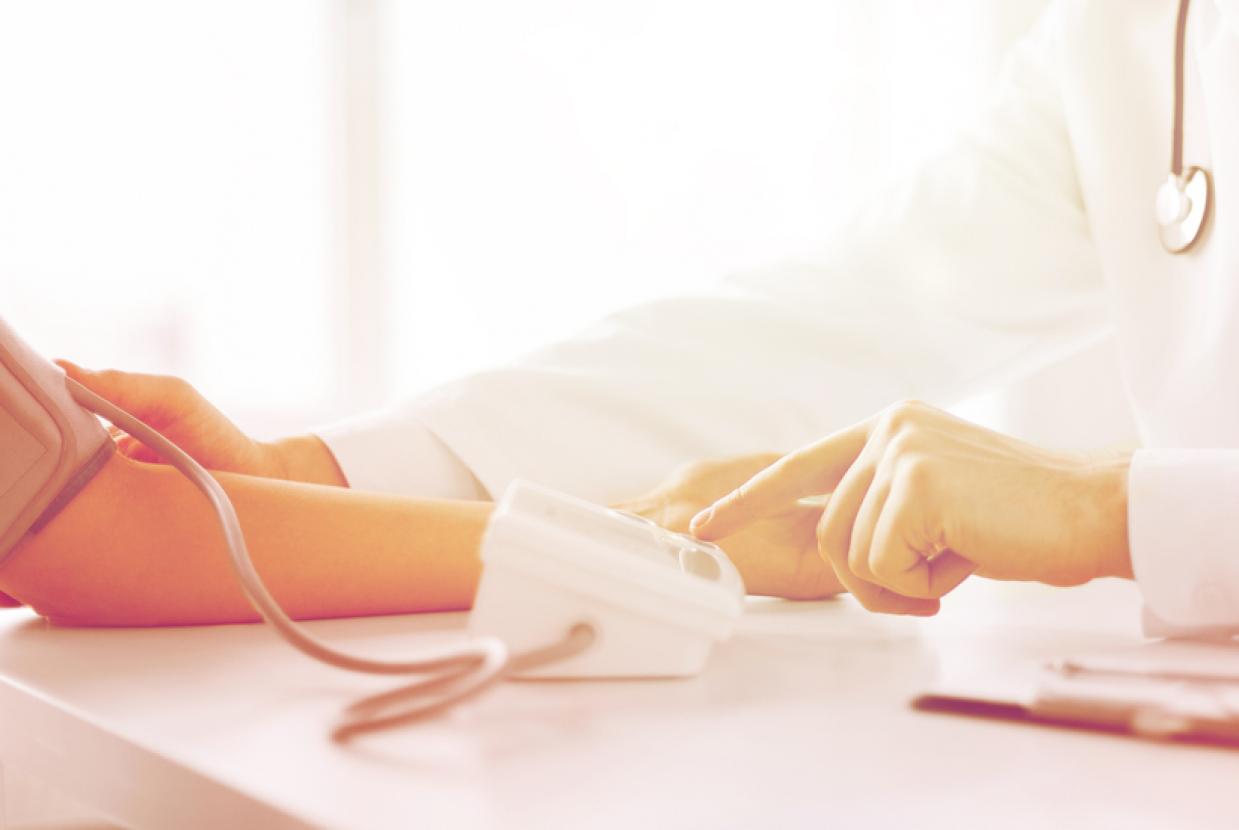Living With Cancer: The Emotional Impact
Some men say being diagnosed and living with prostate cancer changes the way they think and feel about life. It can be hard to deal with emotionally as well as physically, and can affect how you feel. You might feel scared, worried, stressed, helpless or even angry. There’s no right way to think and feel, and everyone reacts in their own way.
If you are feeling down or worried and are finding it hard to deal with things, speak to your GP or specialist team. There are treatments and support available. If you need to speak to someone immediately, ring the Samaritans.
We're there for you too. You can speak to our Specialist Nurses over the phone or speak to a nurse online.
Common thoughts and feelings
Men respond in all kinds of ways to being diagnosed and living with prostate cancer. You may feel a wide range of emotions and they might change very quickly.
- Shock, fear or anger. You could feel any or all of these things when you’re told you have prostate cancer.
- Denial. If you feel well, you may find it difficult to accept that you have prostate cancer.
- Frustration and disappointment. The way you think about yourself, your life and your plans might have changed.
- Stress. It can be difficult to decide what treatment to have and you might feel stressed.
- Worries about side effects. If you have side effects like erection, urinary and bowel problems, then coping with these could also make you feel down or worried.
- Sense of loss. Hormone therapy can cause physical changes to your body, such as putting on weight, reduced physical strength, or changes to your sex life. This might make you feel very different about your body and cause a sense of loss.
- Changing identity. Sometimes men say they feel less of a man because of their diagnosis and treatment. Some men feel that their role in the family has changed – for example, because they’ve had to stop working.
- Mood swings. Hormone therapy can make you feel emotional and down. It can also cause mood swings, such as getting tearful and then angry.
- Anxiety. Some men worry about getting their prostate specific antigen (PSA) test results. The PSA test is used to monitor your cancer if you’re not having treatment straight away or to check how successful treatment has been. Even after treatment has finished some men feel anxious and find it hard to move on and think about the future.
- Feeling alone. You might feel isolated, especially if your treatment has finished and you’re no longer seeing your doctor or nurse.
Thinking about the future
It’s natural to find it difficult and upsetting to think about the future – particularly if you have advanced prostate cancer. Many men with advanced cancer will have treatment that will control their cancer for many months or years but it could be a worrying time.
You might find that making plans helps you feel more prepared for what the future may hold, and reassured about the future for your family.
Read more about living with advanced prostate cancer.
Depression - seeing the signs
Men with prostate cancer may get depressed before, during or after treatment.
Depression can cause a variety of symptoms from feelings of unhappiness and hopelessness, to losing interest in the things you usually enjoy and feeling very tearful. Many people with depression also feel anxious or worried. These feelings can impact on your life and mean that you feel constantly tired, sleep badly and have no appetite. You may feel more angry and irritable than before.
If you notice these changes in yourself and they don’t go away after a few weeks, speak to your GP, hospital doctor or nurse – there are things that can help. Regular physical activity may also help you deal with feelings of anxiety and depression. Learning ways to relax, such as yoga or meditation, might also help.
You can also talk things through with our Specialist Nurses. If you need to speak to someone immediately, ring the Samaritans or 111.
What can help?
Give yourself time. Don’t put yourself under pressure to be positive if that’s not how you feel. There will be good days and bad days – make the most of the days you feel well, and find ways to get through the bad days.
Some men want to find their own way to cope and don’t want help from anyone else. Other men try to cope on their own because they are uncomfortable talking about how they feel or are afraid of worrying loved ones. But there is support available if you need it.
How can I help myself?
Everyone has their own way of dealing with prostate cancer, but you may find some of the following suggestions helpful.
- Find out about your treatment, so you know what to expect and what your options are.
- Find out about the side effects of your treatment, so you know what to expect, and how you can try to manage them.
- Be active as you can. Physical activity such as gentle walking can improve your mood.
- Think about what you eat and drink. Some men find they manage better by aiming for a healthy, balanced diet.
- Share what you’re thinking – find someone you can talk to. It could be someone close, or someone trained to listen, like a counsellor or your medical team.
- Take time out to look after yourself. When you feel up to it, learn some techniques to manage stress and to relax – like listening to music or breathing exercises.
- Set yourself goals and things to look forward to.
- Find more strategies in our booklet, Living with and after prostate cancer: A guide to physical, emotional and practical issues
- Get more ideas about how to look after yourself from local cancer support centres as well as Macmillan Cancer Support, Maggie’s Centres and Look Good Feel Better
Who can help?
Your medical team
It could be useful to speak to your nurse, doctor, GP or someone else in your medical team. They can help you understand your diagnosis, treatment and side effects, listen to your concerns, and put you in touch with other people who can help.
Our Specialist Nurses
Our Specialist Nurses can answer your questions and explain your diagnosis and treatment options. They’ve got time to listen, in confidence, to any concerns you or those close to you have.
Trained counsellors
Counsellors and psychotherapists help you to talk about your feelings, think about your choices or behaviour and make positive changes in your lives. This could include things like learning to accept that you have cancer and to take each day as it comes. Many hospitals have counsellors or psychologists who specialise in helping people with cancer – ask your doctor or nurse at the hospital if this is available.
Your GP may also refer you to a counsellor or therapist. You can also refer yourself on the NHS website, or you can see a private counsellor or therapist. To find out more, visit the NHS website or contact the British Association for Counselling & Psychotherapy.
Talk to someone who's been there
It can sometimes help to talk to other men living with prostate cancer. All the services below are free of charge.
- Our one-to-one peer support service is a chance to speak to someone who’s been there and understands what you’re going through. They can share their experiences and listen to yours. You can discuss whatever’s important to you. Our Specialist Nurses will try to match you with someone with similar experiences.
- Our online community is a place to talk about whatever's on your mind – your questions, your ups and your downs. Anyone can ask a question or share an experience.
- At support groups, people affect by prostate cancer get together to share their experiences of living with it. You can ask questions, share worries and know that someone understands what you’re going through. Some groups have been set up by local health professionals, others by men themselves. Many also welcome partners, friends and relatives. To find your local group or an online support group, please visit the Tackle Prostate Cancer website.


